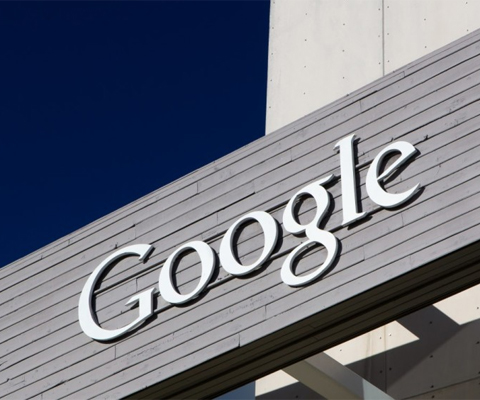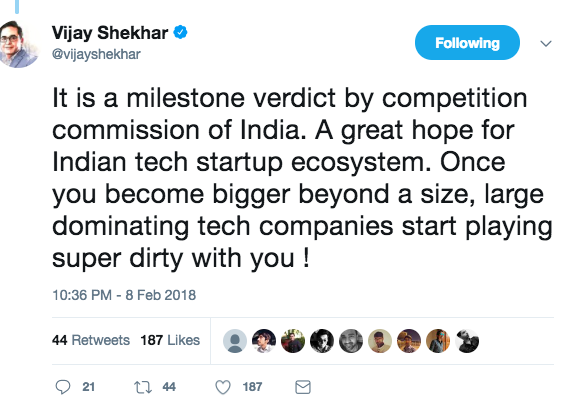Will Google’s Competition Commission fine mean SEO opportunities for PR?
PR Insight
Paarul Chand
 Last week, the ‘Competition Commission of India’ fined Google 136 crore rupees for biasing search results in its’ favour. In 2017, the European Union fined Google 2.8 billion dollars for violating anti-trust laws for the way ads were displayed.
Last week, the ‘Competition Commission of India’ fined Google 136 crore rupees for biasing search results in its’ favour. In 2017, the European Union fined Google 2.8 billion dollars for violating anti-trust laws for the way ads were displayed.
Adding to the ‘Techlash’, a phenomenon picked by ‘The Economist’ as one of the issues of 2018; Unilever said over the weekend that they would pull all advertising off channels such as Facebook and YouTube if they didn’t do more to control fake news and hate speech.
A more equal SEO playing field for local firms?
Swapan Dholakia, head , communications and outreach, SharkID says that senior PR professionals will doubtless be watching this development , especially in light of the fine on Google. Says Dholakia, “ While it will take time for the impact to be seen, big league players could band together to protect the Indian market."

Already, Paytm’s Vijay Shekhar Sharma, has spoken out bluntly, in favour of the fine as an opportunity to offer more equal footing to home grown tech firms.
Dholakia says communications professionals should map how the techlash trend is playing out for the next 4-5 years and look at issues such as how data is being used and how the government is protecting consumer interests.
Adds Dholakia, “The Indian Government can also join hands with the EU and other like minded countries to raise their concerns at a global level. This will help to send a message to big tech companies to tone down their aggressive tactics.”
Pranav Kumar, managing director, India, Allison+Partners, explains how the fine will impact PR strategy. Says Kumar, “I don’t think anything fundamentally changes in the way brands approach digital PR and more specifically, SEO from an organic, communications perspective. Google search algorithms as we know, value authenticity, in-depth and visually appealing content. The more mastery you demonstrate on a topic, referencing the right terms or words contextually, the more your SEO efforts are rewarded.”
He however adds that, “ What does change keeping the CCI ruling in perspective is we hope down the line, a more equitable representation of search engine results but that is more from an AdWords and bidding view. We just need to keep our focus on creating great content and focusing on content which is optimised for mobile and I guess with the rise of voice assistants, perhaps more long-tailed key words when looking at SEO strategies (According to Google, one out of five searches are voice based now).”
Impact on Consumer, ecosystem advocacy
Subhash Pais, founder and business head, i9 Communications, says as a consumer the concern would be as the search result favouring Google’s point of view and providing us with the right choices? How is the data being manipulated. “ Says Pais, “ The tech companies are only getting bigger and stronger. Therefore, I would like them to take consumer freedom more seriously. And I would like our regulators to be more proactive.”
Pais clarifies this doesn’t mean that there should be over-regulation, but enough to look after consumer interests. Pais also points out that it's not that Big Tech is not protecting consumer interests but they could be seen as doing more.
Pais advises, “Google should work with interest groups to build trust. In a way, they are in the same place as ‘Big Tobacco’ and ‘Big Pharma’ were decades ago. Ideally ‘Big Tech’ should look at addressing the special interest groups.”
Pais says that he is sure that below the line PR is on, but they should also be transparent about addressing concerns.
Himanshu Raj, senior manager-PR & communications, Zeta agrees saying that, “ Tech firms should establish a transparent channel of communication.”
Raj adds that some of the sectors that are likely to see a techlash are Fintech, Telecommunications(messaging services) , Transportation network industries (Cab hailing services) and E-commerce (Online pharmacy).
PR opportunity
The level of advocacy needed in the coming years in the wake of Techlash, represents a massive PR opportunity for Indian PR professionals. Pais says that they are already pretty late in grabbing the chance, while lobbying firms have already been doing the rounds.
However, Pais points out , so far the response such as the campaigns around Aadhar and Free Basics have been isolated, almost random. But, Pais feels that the situation is ripe for a strategic and sustained advocacy campaign on the issues represented by recent fine on Google.
How to work with policy makers • Set up your own regulatory committee
• Engage in Philanthropy- Philanthropy can change people’s opinions and shape your legacy.
• It is critical to think about local initiatives that can help you win public opinion.
Himanshu Raj, Zeta
Dholakia comments further saying, “I think for India most pushbacks will be most terms of security: (national & economic) security, surveillance, data security, encryption, misuse of social platforms.
The companies do not need to combat it, they need to cooperate. By providing selective conditional access and teaming with the government, the tech sector will not only change public view (for long term perspective and business) but also open doors to doing business with the government – among the largest spenders on technology these days. The resulting reputation of a responsible corporate citizen is a bonus.”
Dholakia also feels that Indian PR pros will be especially good at picking up Techlash related issues. He says, "We often forget how complex, bewildering and diverse a market India is. PR professionals have successfully navigated & delivered over the years in this very market. That said, the senior crop of PR professionals in India have an incredible sense of history and have learnt from it - having executed many a crisis in the past, they would surely be able to evolve an effective plan for this one.“
Techlash is on Indian shores and the PR business would ignore it at their peril.
If you enjoyed this article, you can subscribe for free to our weekly event and subscriber alerts.
Featured

PR professionals share their views on journalists publicly calling them out on story pitches

Auto blogger renders unconditional apology to Value 360 for defamatory posts

Hottest Indian startups of 2020, Paytm, Dreams 11 lead the charge: Wizikey Report




